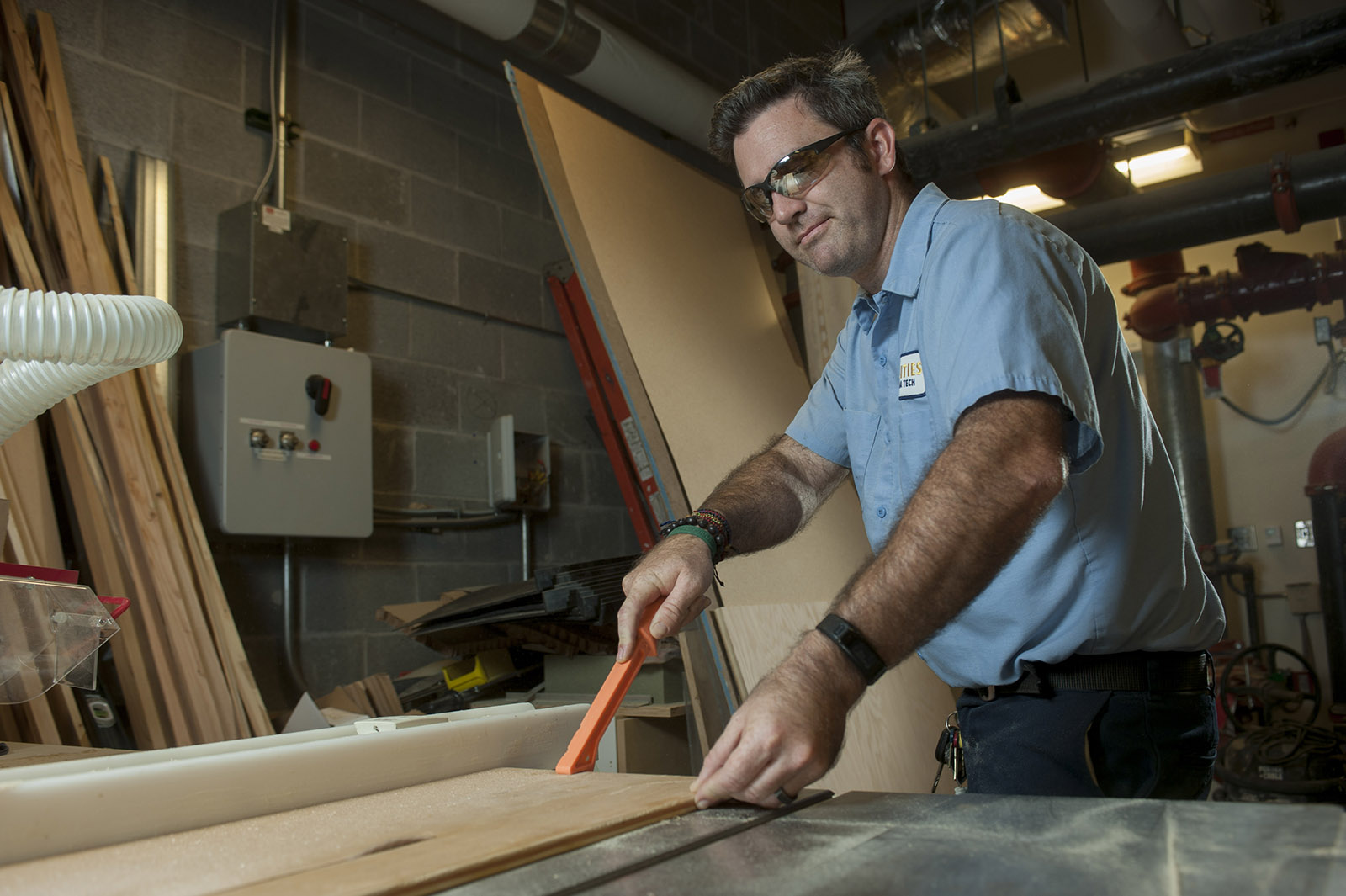
Jacob “Jack” Davis has traveled to the southeast African nation of Malawi almost every summer since 2011. But, not for vacation.
Jacob “Jack” Davis has traveled to the southeast African nation of Malawi almost every summer since 2011. But, not for vacation. Davis, who is a carpenter II at Georgia Tech 11 months of the year, spends each July in Malawi working as an archaeologist, exploring pre-historic areas of civilization.
When talking to a young archaeologist who works at a university, the first question is: Did his interest in archaeology come from—
“Indiana Jones? Absolutely!” Davis interjects. “I’m a huge fan of Indiana Jones. I’ve got the hat.”
He was even in the stage show performance of the movie at Disneyland for one day — just for giggles, he said.
But his work as an archaeologist is no laughing matter. He is a main member of a project that recently made news for discovering the oldest DNA in Africa. The team conducted a genome-wide analysis of 16 African individuals who lived up to 8,100 years ago. And, they found evidence for a divergent human lineage contributing to western Africans.
The leader of the project is Jessica Thompson, a Paleolithic archaeologist and assistant professor of anthropology at Emory University. She also is Davis’s wife. The two met in Malawi in 2011 during a three-week field course. Davis was finishing his bachelor’s degree in archaeology from the University of Queensland in Brisbane, where he was born and raised.
Before studying archaeology, Davis was a retail manager for REI, the outdoor recreation store. He wasn’t satisfied with his job and wanted to change his life. So, he considered getting a degree in civil engineering because he figured it would partner well with carpentry.
Then, his best friend asked, “Would that be your dream job? Would that make you really happy?”
Davis replied, “No. Archaeology would make me happy. Being able to travel the world, to see cool things that haven’t been seen in such a long time, and to learn more about people. That would really be great.”
His friend said, “Well, go do that.” Davis did.
While a full-time archaeology student, Davis also was in the army, and he worked as an apprentice carpenter in Brisbane. He and his wife moved to the U.S. two and a half years ago when she accepted the position at Emory.
Davis started working at Tech in February of 2016. He helps with carpentry needs in Area 2 of campus, which includes the Krone Engineered Biosystems Building, Petit Institute for Bioengineering and Bioscience, Ford Environmental Science and Technology Building, Georgia Tech Police Department, and the president’s residence.
“It could be repairing cabinets. There are a lot of doors that need to be fixed; gravity and time warp the hinges,” he said.
Davis’s experience as a carpenter and his ability to use tools is very useful when on an archaeological dig.
“Everything breaks in Africa,” he said. “You can have the most reliable thing in the world and it will break as soon as you arrive. I had a new Fitbit and it broke two days in. Then when I got back home, it started working again,” he laughed.
“If you’re an archaeologist in the field, after a couple of years, you will come out knowing basic electrical work, basic mechanical work, and basic carpentry,” he said. “We’re constantly sharing ways to fix things.”
So, what does Davis look forward to when returning to Malawi every July?
He said the country is beautiful, and the people are warm and inviting. He has made some good friends, and he looks forward to reuniting with them every summer.
He also looks forward to the food.
“Tomatoes with a bit of salt on them,” he said. “The food is sensational. All of the produce is picked each morning. We have local guys who cook for us, and the whole crew sits down like a big family every afternoon. We have these giant cook-out meals with tomatoes, collard greens, onions, beans and an easy-to-make local bread called nsima.”
He said he is fortunate to have supervisors at Tech who are supportive of his work in archaeology, as well as his educational pursuits. He plans to apply for Tech’s master’s program in geographic information science and technology.
“Tech has so many opportunities for employees it’s ridiculous,” Davis said. “You have STRAP and TAP (education assistance programs), and being able to work here and go to school
is fantastic.”